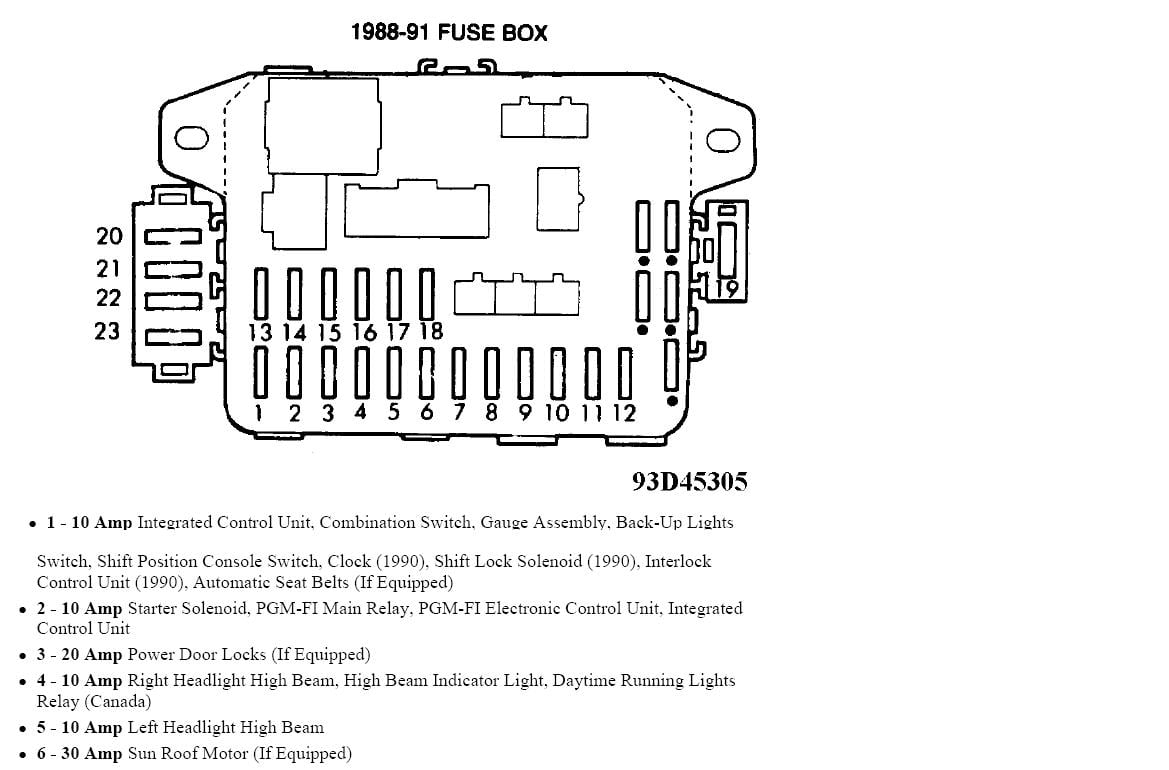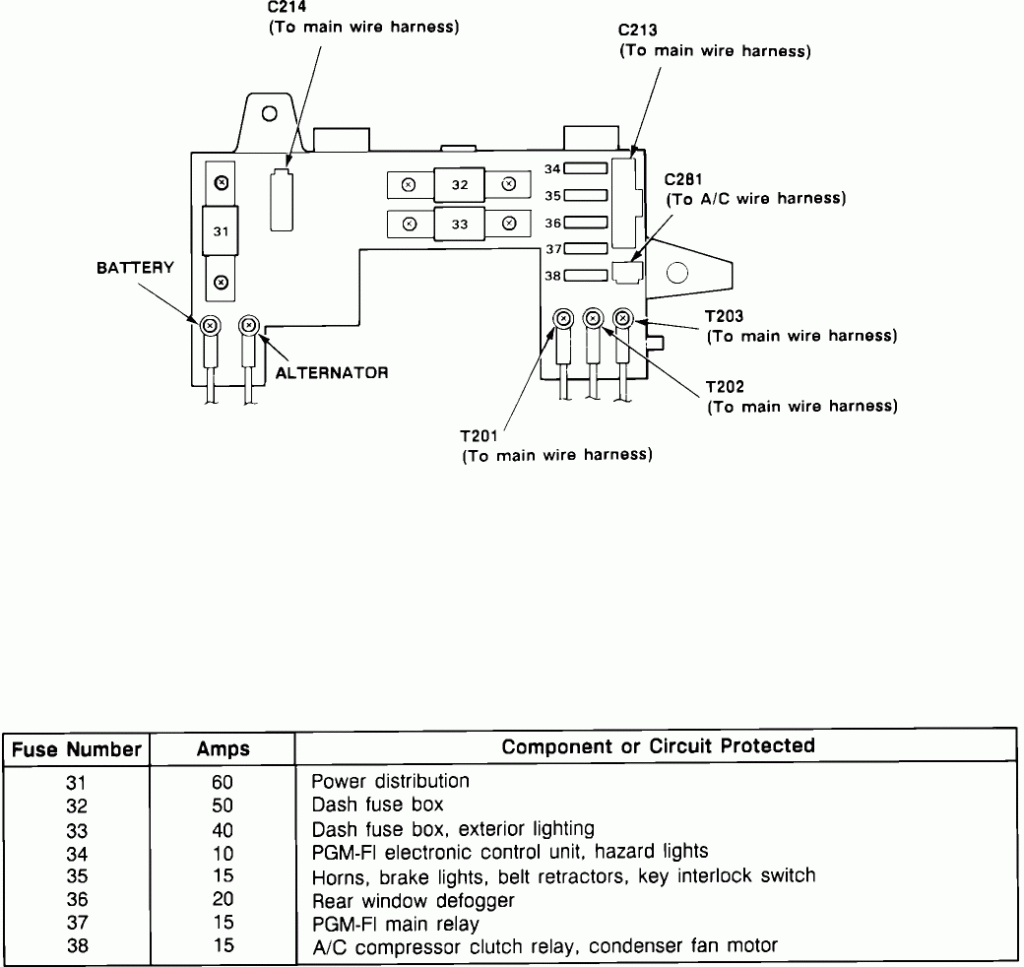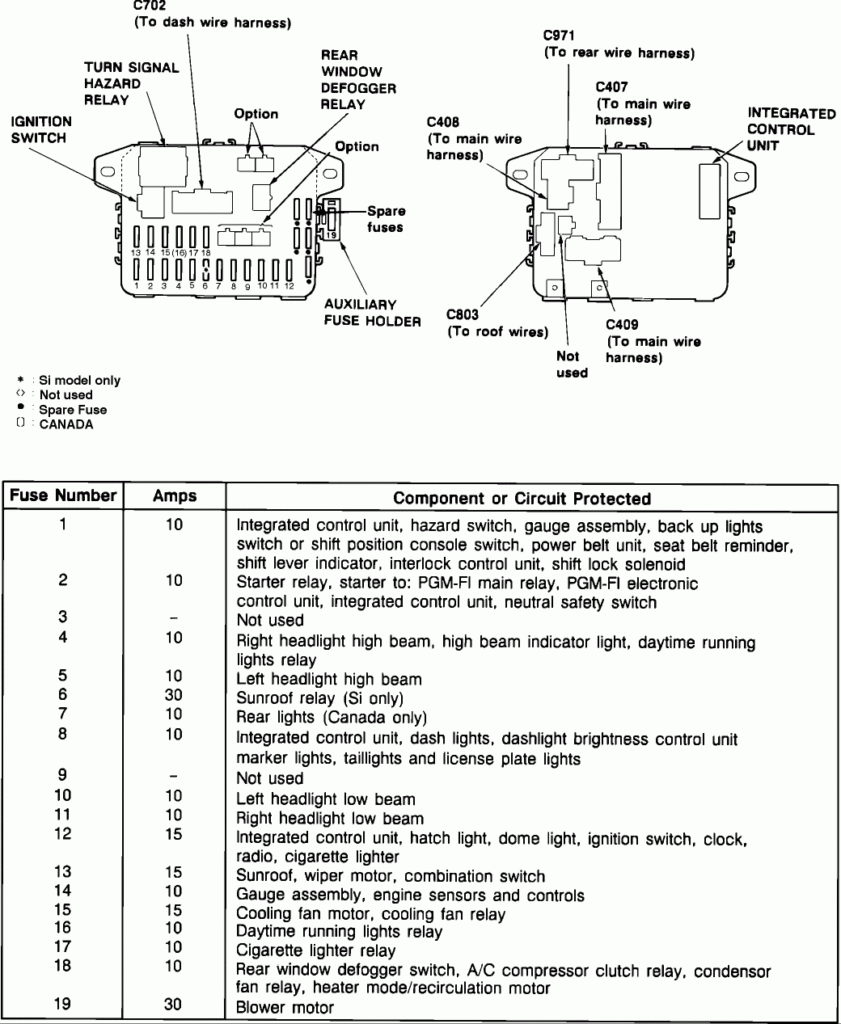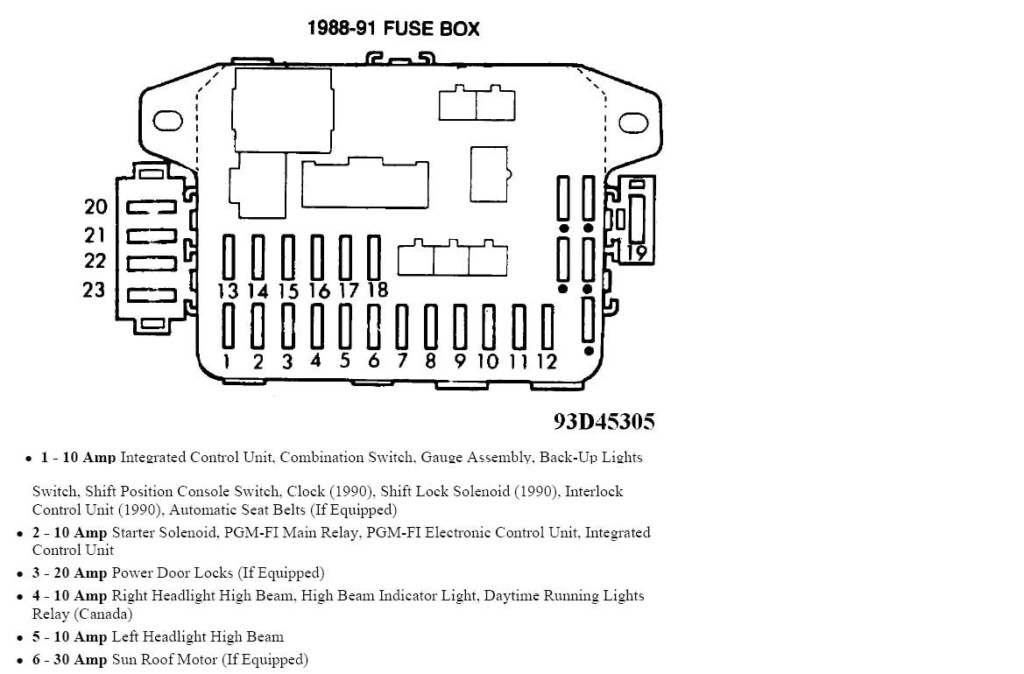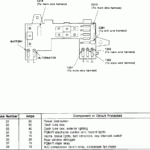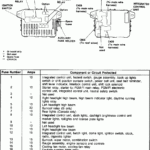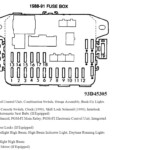Crx Fuse Box Diagram – The schematics of fuse boxes are crucial tools for understanding and troubleshooting the electrical systems within your vehicle or home. They display an illustration of the layout and purpose of circuit breakers and fuses which protect circuits. This guide will provide information on diagrams and symbols for fuse boxes along with the most common troubleshooting techniques.
Types of Fuse Box Diagrams
A fuse box diagram is a crucial tool in the home repair and electrical projects.
Diagrams of fuse boxes are found in a variety of situations, including automobiles and even residential structures. Here are two types of fuse boxes that are commonly used.
A. A. You can usually find them in your owners manual or on a label inside the fuse box.
C. Home Fuse Box Diagrams: Diagrams of electrical panels, often called home fuse box diagrams illustrate the layout of circuit breakers and fuses in a home electrical system. These diagrams offer homeowners documents about their home.
Understanding Fuse Box Diagram Symbols
Fuse box symbols are visual representations that represent the various components of an electrical system. These icons are common:
- Fuses are tiny rectangles with a number in them, which represent the fuse’s amperage rating.
- Circuit Breakers – A symbol that looks like a switch and is a symbol for a resettable safety device
- Ground – Looks like an inverted “T” with an arrow that is horizontal, representing the ground electrical connection
Common Fuse Box Issues
If you are faced by electrical issues the following steps can assist to pinpoint and correct the issue:
- First, you must recognize the Problem
First, you must identify the electrical component that isn’t functioning properly in your car or home. It could be your light, outlet, appliance, or light source in your house; or perhaps your vehicle’s radio or air conditioning.
- Step 2: Locate the correct Fuse
Find the circuit breaker, or fuse connected to the part that is failing by looking at the fuse box diagram. They are usually marked by a symbol or an explanation.
- Step 3: Check and replace the fuse:
Remove the fuse and disconnect the circuit breakers. Check for any burning or damage. Replace the fuse using one of the same amperage or reset your circuit breaker if required. Test this component to confirm it is functioning properly.
Conclusion
For troubleshooting electrical problems within your home or car, it is important to be familiar with fuse box diagrams. You can easily identify the most the most common problems and resolve it by following these steps.
